Today Current Affairs:27th June 2022 for UPSC IAS exams, State PSC exams, SSC CGL, State SSC, RRB, Railways, Banking Exam & IBPS, etc
Table of Contents
Card Tokenisation:
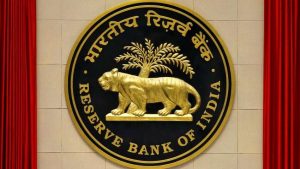
The Reserve Bank of India (RBI) extended the timeline for tokenisation of debit and credit cards by three months till 30th September, 2022 to avoid disruption and inconvenience to cardholders.
- After 30th September, no entity in the card transaction or payment chain, other than the card issuers and card networks, should store the CoF (Card-on-File data or storage of actual card data) and any such data stored previously will be done away with.
- Tokenisation refers to replacement of actual credit and debit card details with an alternate code called the “token”, which will be unique for a combination of card, token requestor and device.
- A tokenised card transaction is considered safer as the actual card details are not shared with the merchant during transaction processing.
- Customers who do not have the tokenisation facility will have to key in their name, 16-digit card number, expiry date and CVV each time they order something online.
- As of now, about 19.5 crore tokens have been created. Opting for CoFT (creating tokens) is voluntary for the cardholders.
- Card-on-File: A CoF transaction is a transaction where a cardholder has authorised a merchant to store the cardholder’s Mastercard or Visa payment details.
- The cardholder then authorises that same merchant to bill the cardholder’s stored Mastercard or Visa account.
- E-commerce companies and airlines and supermarket chains normally store card details in their system.
Vertical Launch Short Range Surface To Air Missile:
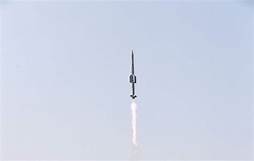
Vertical Launch Short Range Surface to Air Missile (VL-SRSAM) was successfully flight-tested by Defence Research & Development Organisation (DRDO) and the Indian Navy from an Indian Naval Ship at Integrated Test Range (ITR), Chandipur off the coast of Odisha.
- VL-SRSAM has been designed and developed jointly by three facilities of the Defence Research and Development Organisation for deployment of Indian Naval warships.
- The missile has the capability of neutralizing various aerial threats at close ranges including sea-skimming targets.
- Sea skimming is a technique many anti-ship missiles and some fighter or strike aircraft use to avoid radar and infrared detection.
- The missile has been designed to strike high-speed airborne targets at the range of 40 to 50 km and at an altitude of around 15 km.
- Its design is based on Astra missile which is a Beyond Visual Range Air to Air missile.
- Astra (“weapon”) is India’s first air-to-air all weather beyond-visual-range active radar homing air-to-air missile, developed by the Defence Research and Development Organization.
- A Beyond-Visual-Range missile (BVR) is an air-to-air missile that is capable of engaging at ranges of 20 nautical miles or beyond.
- Features:
- Cruciform wings: They are four small wings arranged like a cross on four sides and give the projective a stable aerodynamic posture.
- Thrust Vectoring: It is the ability to change the direction of the thrust from its engine, control the angular velocity and the attitude of the missile.Thrust is the force which moves an aircraft through the air.
- Canisterised system: The inside environment is controlled, thus making its transport and storage easier and improving the shelf life of weapons.
Vanijya Bhawan And Niryat Portal:
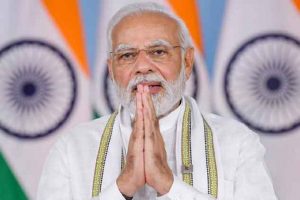
Prime Minister Narendra Modi inaugurate the new premises of the Ministry of Commerce and Industry – ‘Vanijya Bhawan’ in June 2022.
- Prime Minister has launched Vanijya Bhawan and NIRYAT (National Import-Export Record for Yearly Analysis of Trade) Portal.
- Vanijya Bhawan is the new premises of the Ministry of Commerce and Industry.
- Vanijya Bhawan, which is constructed near the India Gate (New Delhi) will be used by the two departments under the Ministry i.e. Department of Commerce and the Department for Promotion of Industry and Internal Trade (DPIIT).
- NIRYAT (National Import-Export Record for Yearly Analysis of Trade) is developed as a one-stop platform for the stakeholders to get all the necessary information that is related to India’s foreign trade.
- India exported a total of USD 670 billion- Rs. 50 lakh crores in 2021.
U.S. Supreme Court Overturns Abortion Right:
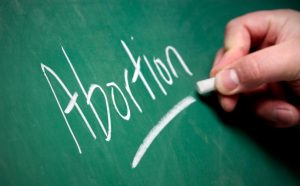
In a significant curtailment of women’s rights, the U.S. Supreme Court overturned Roe v. Wade, a 1973 landmark decision giving women in America the right to have an abortion before the foetus is viable outside the womb — before the 24-28 week mark.
- It also overturned was Planned Parenthood v. Casey, a 1992 case that upheld Roe.
- Abortion rights which have been available to women for over two generations will now be determined by individual States.
- Some 20 States have laws (which were overruled by Roe until now) restricting or banning abortions.
- Thirteen States have laws banning the procedure, that come into effect, now that Roe has been overturned.
- Addressing the nation, President Joe Biden called the decision a “tragic error” and a “sad day” for the court and the country. “The court has done what it has never done before, expressly take away a constitutional right that is so fundamental to so many Americans,” he said.
- Biden warned officials, “state or local” ,” high or low” not to interfere in the right of a woman to travel to a State where she could have an abortion.
Roe v. Wade:
- The case, sometimes referred to simply as “Roe”, struck down laws that made abortion illegal in several states, and ruled that abortion would be allowed up to the point of foetal viability, that is, the time after which a foetus can survive outside the womb.
- Foetal viability was around 28 weeks (7 months) at the time of the ‘Roe’ judgment nearly 50 years ago; experts now agree that advances in medicine have brought the threshold down to 23 or 24 weeks (6 months or a little less), and newer studies show this could be further pegged at 22 weeks. An average pregnancy lasts about 40 weeks.
- Foetal viability is often seen as the point at which the rights of the woman can be separated from the rights of the unborn foetus.
Ambubachi Mela ,Assam And ‘Sao Joao’ Festival ,Goa:

The Ambubachi Mela is an annual Hindu mela held at Kamakhya Temple in Guwahati, Assam. This yearly Mela is celebrated during the monsoon season that happens to fall during the Assamese month Ahaar, around the middle of June when the sun transit to the zodiac of Mithuna, when the Brahmaputra river is in spate.
- The festival marks the annual menstruation of the presiding Goddess.
- The temple (on the Nilachal Hills) houses the yoni (female genital)symbolised by a rock.
- Kamakhya is one of 51 shakti peethasor holy sites for the followers of the Shakti cult
‘Sao Joao’ festival :
- It is the feast of St John the Baptist. Traditionally, people jump into the well but since the wells are fast disappearing, people prefer to celebrate it in swimming pools.
- It is celebrated to commemorate the day in the name of St John De Baptista who was believed to have baptised Jesus Christ.
- Sao Joao, like any other Goan festival, has that captivating spirit of merriment, colour and tradition.
- People dressed in colourful outfits from several villages meet and celebrate the day like a carnival.
Children And Adolescents In Need Of Education Support:
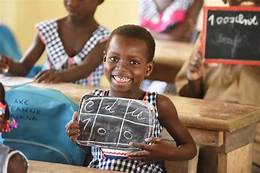
The United Nations global fund for education in emergencies and protracted crises, Education Cannot Wait (ECW), released a report that indicates the number of crisis-impacted school-aged children requiring educational support has grown from an estimated 75 million in 2016 to 222 million.
Highlights of the Report:
- The study indicates that as many as 78.2 million are out of school, and close to 120 million are in school, but not achieving minimum proficiency in math or reading. In fact, just one in ten crisis-impacted children attending primary or secondary education are actually achieving these proficiency standards.
- The analysis indicates that 84% of the out-of-school crisis-impacted children are living in areas with protracted crises.
- The vast majority of these are in countries specifically targeted through ECW’s ground-breaking multi-year investments, including Afghanistan, Democratic Republic of the Congo, Ethiopia, Mali, Nigeria, Pakistan, Somalia, South Sudan, Sudan and Yemen.
- The war in Ukraine is pushing even more children out of school, with recent estimates indicating the conflict has impacted 5.7 million school-aged children.
- Around 119.6 million children living in crisis-prone areas attended school but did not achieve minimum proficiency in mathematics or reading.
- #222 Million Dreams: To respond to this pressing global education crisis, ECW and strategic partners launched the #222MillionDreams resource mobilization campaign in Geneva.
- The campaign calls on donors, the private sector, philanthropic foundations and high-net-worth individuals to urgently mobilize more resources to scale up ECW’s investments, which are already delivering quality education to over 5 million children across more than 40 crisis-affected countries.
Gustavo Petro:

Ex-guerrilla Gustavo Petro was elected the first ever left-wing president of Colombia, after beating millionaire businessman Rodolfo Hernandez in a tense run-off election.
- Petro will succeed the deeply unpopular conservative Ivan Duque, who was barred by Colombia’s Constitution from standing for re-election, in a country saddled with widespread poverty, a surge in violence and other woes.
- Colombia is a country in South America bordered by the Caribbean Sea to the north, Venezuela to the east, Brazil to the southeast, Ecuador and Peru to the south, the Pacific Ocean to the west and Panama to the northwest.
- It is the only country in South America with coastlines and islands along both Atlantic and Pacific oceans.
- Its capital is Bogotá. Colombia is one of the world’s seventeen megadiverse countries.
12th India-Nepal Joint Working Group (JWG):

The 12th India-Nepal Joint Working Group (JWG), which discusses several issues related to Border Management and security matters, was held in New Delhi in June 2022.
- The two sides reviewed the decisions taken in the last JWG held in 2015 in Pokhara, Nepal.
- The Joint Working Group reviewed the Border District Coordination Committee (BDCC) meetings held earlier and also the progress made on the signing of the Mutual Legal Assistance Treaty, Extradition Treaty and other outstanding MoUs to be signed between the two sides.
- The Indian Delegation was led by Joint Secretary (Border Management) in the Ministry of Home Affairs and the Nepali side was led by the Joint Secretary, Ministry of Home Affairs, Nepal.
- The Nepalese delegation extended an invitation to the Indian delegation for the next JWG to be held in Nepal next year.
The United States Senate Has Passed a Gun Safety Bill:

The United States Senate has passed a gun safety bill, the most significant action against rising gun violence in the country.
- The bill was passed on June 23, hours after the US Supreme Court ruled that Americans have a constitutional right to carry firearms in public for their safety and self-defence.
- The bill will now be sent to the Democrat-dominated House of Representatives, where it is likely to sail through, after which it will be sent to US President Joe Biden for his approval.
- The bill has been called the Bipartisan Safer Communities Act.
- The bipartisan bill focuses on firearms and improving medical care in the US.
- The bill seeks to ensure strict background checks for gun buyers, especially minors. The bill will also release funds for educational institutions, to expand their mental health resources and make schools safer.
- The bill was passed exactly a month after a mass shooting in Uvalde, Texas, where a gunman stormed an elementary school and killed 21 people, including 19 children.
- The Uvalde incident came days after a racial shooting in a Buffalo supermarket in New York, where 10 black people were fatally shot.
Eco-Sensitive Zones:
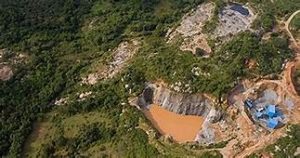
Farmers in Kerala continue to protest across several high ranges of the state against the Supreme Court’s recent order to establish 1-km Eco-Sensitive Zones around all protected areas, wildlife sanctuaries and national parks.
- The widespread unrest is borne out of the fear of farmers losing their livelihood.
- As per the National Wildlife Action Plan (2002-2016), issued by the Union Ministry of Environment, land within 10 km of the boundaries of national parks and wildlife sanctuaries is to be notified as eco-fragile zones or Eco-Sensitive Zones (ESZ).
- While the 10-km rule is implemented as a general principle, the extent of its application can vary.
- Areas beyond 10-km can also be notified by the Union government as ESZs, if they hold larger ecologically important “sensitive corridors.
- The ESZs are not meant to hamper the daily activities of people living in the vicinity, but are meant to guard the protected areas and “refine the environment around them”.
- Guidelines list the activities prohibited in an ESZ, such as commercial mining, saw mills, commercial use of wood, etc., apart from regulated activities like felling of trees.
- Lastly, there are permitted activities like ongoing agricultural or horticultural practices, rainwater harvesting, organic farming, among others.
- ESZs are created as “shock absorbers” for the protected areas, to minimize the negative impact on the “fragile ecosystems” by certain human activities taking place nearby.
- Furthermore, these areas are meant to act as a transition zone from areas requiring higher protection to those requiring lesser protection.
Narcotic Drugs And Psychotropic Substances Act, 1985:
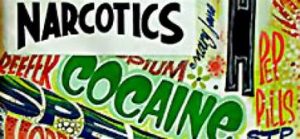
The government is considering transferring the administration of the Narcotic Drugs and Psychotropic Substances Act, 1985 (NDPS Act) and Prevention of Illicit Traffic in Narcotic Drugs and Psychotropic Substances (PITNDPS) Act, 1988 from the finance ministry to Ministry of Home Affairs to bring all issues related to narcotics under one department.
- Currently, while the home ministry governs the Narcotics Control Bureau, the Department of Revenue (DoR) in the finance ministry administers the Narcotic Drugs and Psychotropic Substance (NDPS) Act of 1985 and the Prevention of Illicit Traffic in Narcotic Drugs and Psychotropic Substances Act of 1988.
- The Narcotics Control Bureau (NCB) is a central law enforcement and intelligence agency that has been tasked with combating drug trafficking and the use of illegal substances under the provisions of the NDPS Act.
- The NDPS Act, prohibits a person from the production/manufacturing/cultivation, possession, sale, purchase transport, storage, and/or consumption of any narcotic drug or psychotropic substance.
- The PITNDPS Act, 1988 provides for detention in certain cases for the purpose of preventing illicit traffic in narcotic drugs and psychotropic substances.
- The transfer was being considered under the Government of India (Allocation of Business) Rules, 1961.
- Transferring administration of the NDPS Act and PITNDPS to MHA will lead to a single command chain and unification of all matters related to narcotics.
Open Network For Digital Commerce:

The government has launched the pilot phase of Open Network for Digital Commerce (ONDC) with an aim to “democratise” the country’s fast growing digital e-commerce space that is currently dominated by the two U.S.-headquartered firms — Amazon and Walmart.
- ONDC is a freely accessible government-backed platform that aims to democratise e-commerce by moving it from a platform-centric model to an open network for buying and selling of goods and services.
- Under ONDC, it is envisaged that a buyer registered on one participating e-commerce site (for example, Amazon) may purchase goods from a seller on another participating e-commerce site (for example, Flipkart).
- Presently, buyers and sellers have to be on the same app for a transaction which happens through the same platform. For example, a buyer needs to go to Amazon, to buy a product from a seller on Amazon.
- It is a not-for-profit organisation that will offer a network to enable local digital commerce stores across industries to be discovered and engaged by any network-enabled applications.
- The open network concept extends beyond the retail sector, to any digital commerce domains including wholesale, mobility, food delivery, logistics, travel, urban services, etc.
- It is neither an aggregator application nor a hosting platform, and all existing digital commerce applications and platforms can voluntarily choose to adopt and be a part of the ONDC network.
- The ONDC aims at promoting open networks developed on open-sourced methodology, using open specifications and open network protocols, independent on any specific platform.
- Implementation of ONDC, which is expected to be on the lines of Unified Payments Interface (UPI) could bring various operational aspects put in place by e-commerce platforms to the same level.
- The project to integrate e-commerce platforms through a network based on open-source technology has been tasked to the Quality Council of India.
- Open source refers to a software program or platform with source code that is readily accessible and which can be modified or enhanced by anyone.
- Open source access grants users of an application permission to fix broken links, enhance the design, or improve the original code.
National Air Quality Resource Framework Of India:

Principal Scientific Adviser to the Government inaugurated the National Mission on “National Air Quality Resource Framework of India (NARFI)”.
- NARFI has been developed by the National Institute of Advanced Studies (NIAS), Bengaluru.
- The NARFI is an information mechanism to help decision-makers in government, municipalities, start-ups and in the private sectors to address air pollution issues in different climatic zones of India.
- Research-based audited Information and industry-oriented solutions will be shared in an easy-to-understand format.
- The short-term basic training modules tailored for different groups such as active ground level staff in government establishments, implementers, media and policymakers, would be an integral part of the framework.
- Objectives:
- To help enrich communication and enhance general awareness, leading to self-mitigation.
- Modules: The NARFI will evolve around the following five modules:
- THEME-1: Emission Inventory, Air Shed, and Mitigation
- THEME-2: Impacts on Human Health and Agriculture
- THEME-3: Integrated Monitoring, Forecasting and Advisory Framework
- THEME-4: Outreach, Social Dimension, Transition Strategy and Policy
- THEME-5: Solutions, Public-Industry Partnership, Stubble Burning & New Technologies
Draft Guidelines To Regulate Child Participation In The Entertainment Industry:

The National Commission for the Protection of Child Rights (NCPCR) has published draft Guidelines to Regulate Child Protection within the Entertainment Industry.
- The “Guidelines to Regulate Child Participation in the Entertainment Industry” were issued by the Commission in 2011.
- The new draft increases the scope of the guidelines to cover social media and Over the Top (OTT) platforms for the first time.
Key Highlights of the New Guidelines:
- Any producer of any audio-visual media production or any commercial event involving the participation of a child will now need to obtain the permission of the District Magistrate where the activity is to be performed.
- Producers will also have to run a disclaimer saying measures were taken to ensure there has been no abuse, neglect or exploitation of children during the entire process of the shooting.
- The commission has further included stringent penal provisions for violating the guidelines, including imprisonment, and has mandated that child artists and children being used in entertainment need to be registered with District Magistrates.




